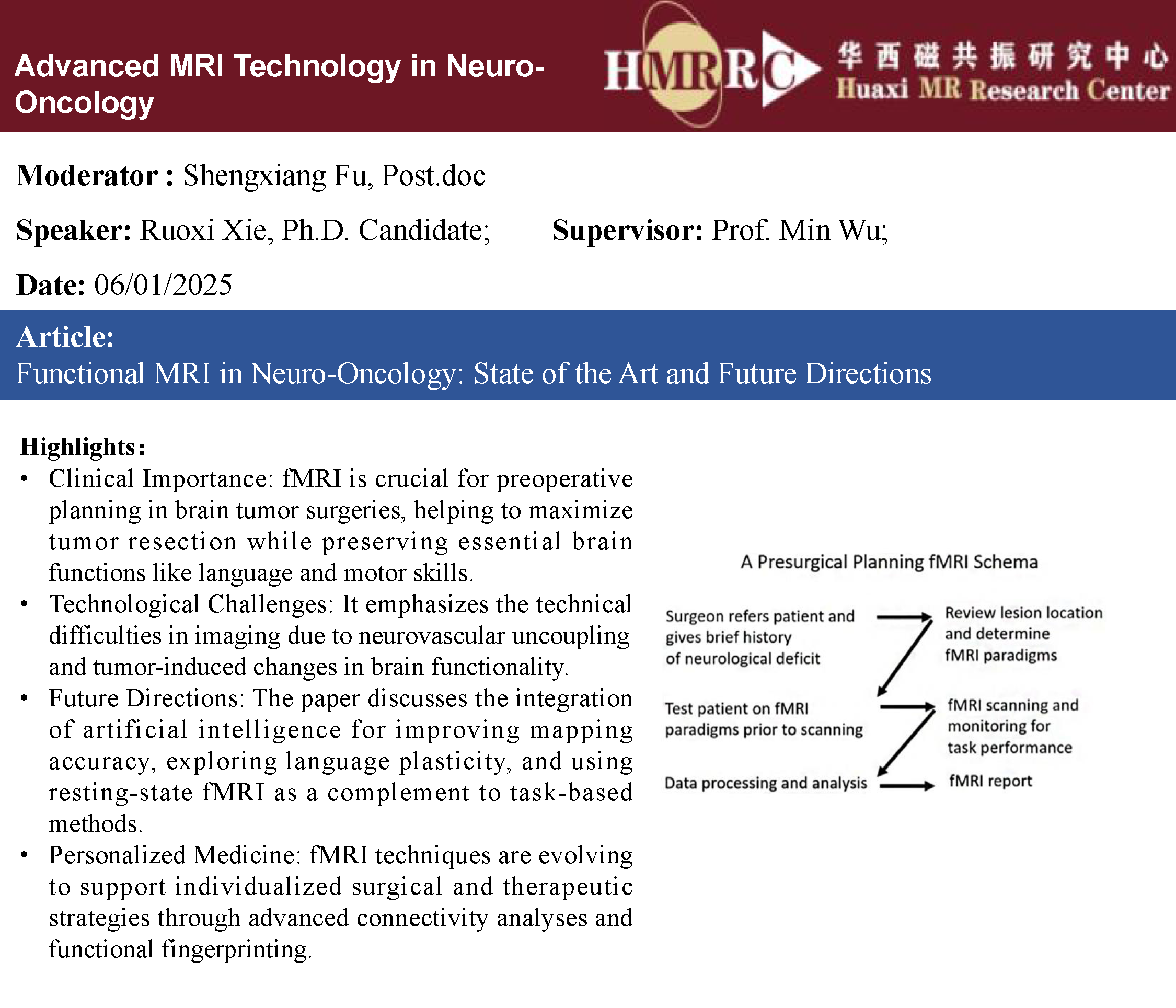Advanced MRI Technology in Neuro-Oncology.
Topic: Advanced MRI Technology in Neuro-Oncology.
Moderator: Shengxiang Fu, Post.doc;
Speaker 1: Ruoxi Xie, Ph.D. Candidate; Supervisor: Prof. Min Wu;
Speaker 2: Xiyuan Zhong, M.M. Candidate
Date: 06/01/2025, 14:00
Location: The lab of HMRRC (10011, the 8th Teaching Building)
Speaker 1: Ruoxi Xie, Ph.D. Candidate
Title: Functional MRI in Neuro-Oncology: State of the Art and Future Directions.
Keypoints:
- Clinical Importance:fMRI is crucial for preoperative planning in brain tumor surgeries, helping to maximize tumor resection while preserving essential brain functions like language and motor skills.
- Technological Challenges:It emphasizes the technical difficulties in imaging due to neurovascular uncoupling and tumor-induced changes in brain functionality.
- Future Directions:The paper discusses the integration of artificial intelligence for improving mapping accuracy, exploring language plasticity, and using resting-state fMRI as a complement to task-based methods.
- Personalized Medicine:fMRI techniques are evolving to support individualized surgical and therapeutic strategies through advanced connectivity analyses and functional fingerprinting.
Speaker 2: Xiyuan Zhong, M.M. Candidate
Title: Hyperpolarized Pyruvate MR Spectroscopy Depicts Glycolytic Inhibition in a Mouse Model of Glioma
Keypoints:
Question: How are metabolic changes in response to glycolytic inhibitor WP1122 treatment in gliomas quantified, and how are these changes associated with long-term tumor prognosis using hyperpolarized [1-13C]-pyruvate magnetic resonance spectroscopy ?
Findings: Hyperpolarized MR spectroscopy with [1–carbon 13]-pyruvate can depict both baseline metabolism and treatment effects of antiglycolytic therapy, and holds promise for rapidly and noninvasively quantifying the metabolic state of gliomas.
- Meaning: Hyperpolarized pyruvate imaging in humans has resolved differences in metabolism between regions within healthy brains, between normal brain tissue and tumor, and between subregions of large tumors. Hyperpolarized pyruvate magnetic resonance imaging (MRS) holds promise in guiding clinical decision-making for patients with gliomas.


